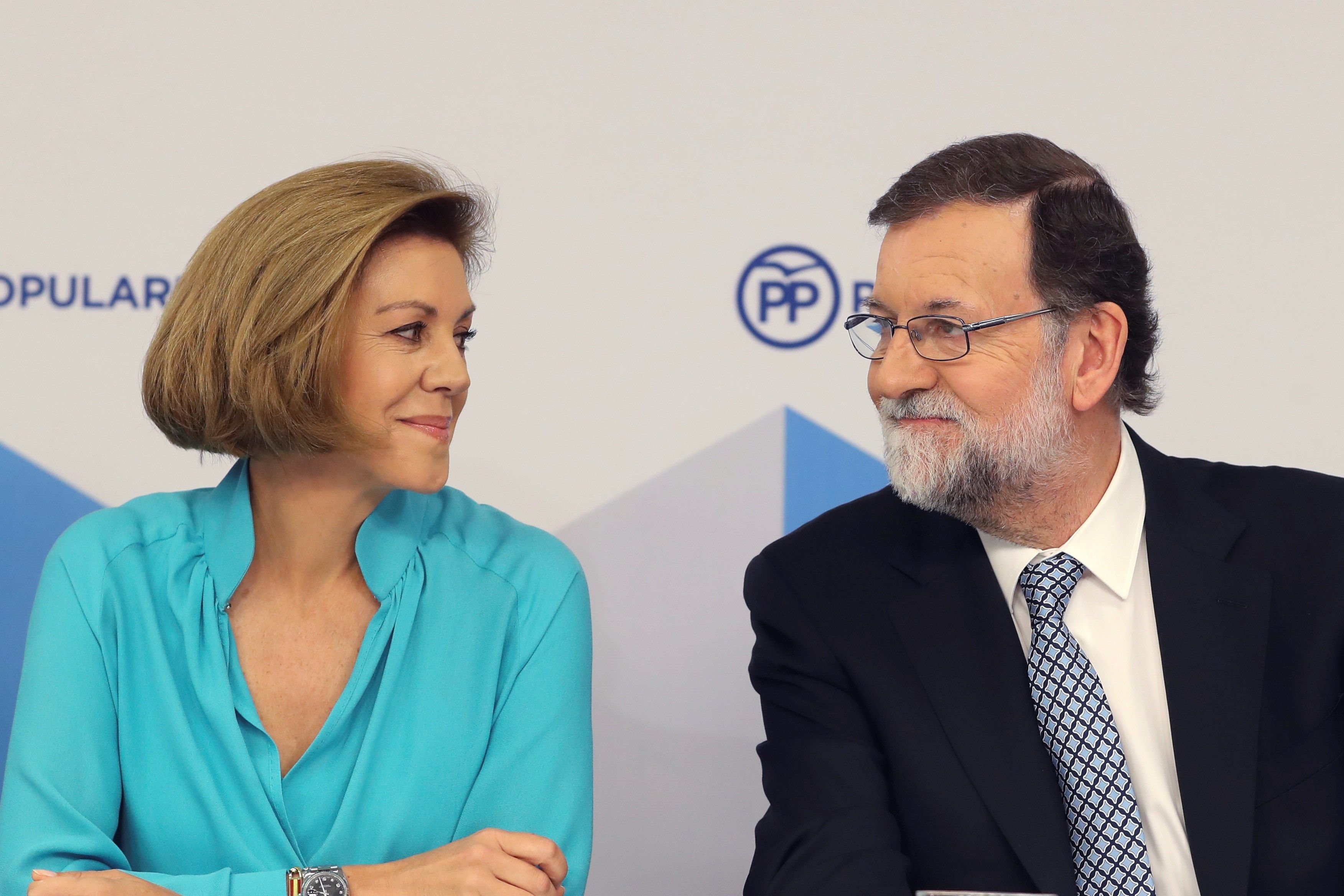The leader of Spain's centre-right PP party, Mariano Rajoy, has resigned and called for an extraordinary party congress to choose his successor. "It's time to bring this to an end. It's the best thing for me and for the PP. It's the best thing for the PP, for myself and for Spain", he told the party's national executive committee this Tuesday. Surrounded by senior party figures, the former Spanish prime minister announced his decision days after losing the motion of no-confidence brought by now prime minister Pedro Sánchez. Rajoy didn't say whether he would leave his Congress seat too, only that he is at the "orders" of his successor, whoever that proves to be.
The former prime minister will now lead the transition to his successor, as some senior party figures wanted, with the aim of opening "a new period" for the party. "We have the results of management which everyone values, now we have to defend it in the face of those who are throwing it away", he said. He also thanked his former ministers for their support, including his deputy prime minister, Soraya Sáenz de Santamaría. His party applauded a visibly emotional Rajoy. The leader recalled sticking up posters 40 years ago when he first joined the party.
He doesn't plan to introduce any changes to PP's parliamentary group in the Congress at the moment. As such, Santamaría will remain a normal member of Congress and Rafael Hernando will remain its spokesperson, entrusted with leading the group and taking important decision. According to some, the extraordinary congress will have to take place before May 2019 when Spain will see local and regional elections. "The party is my life and I won't give up this membership card which has always accompanied me," he said.
Rajoy also used his reappearance to attack Sánchez's fledgling government and its "political fragility" to combat the independence movement. The PP leader strongly criticised it for having been "lifted up" by Catalan parties ERC and PDeCAT, even though the new prime minister's first decision was to choose Josep Borrell, an outspoken opponent of Catalan independence, as his foreign minister. He also criticised

